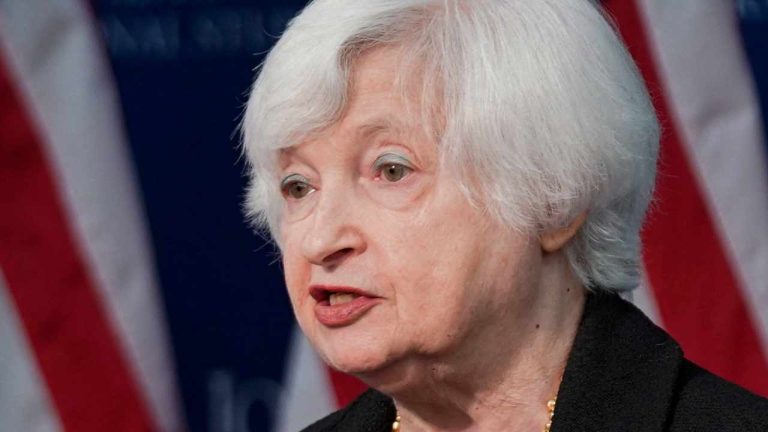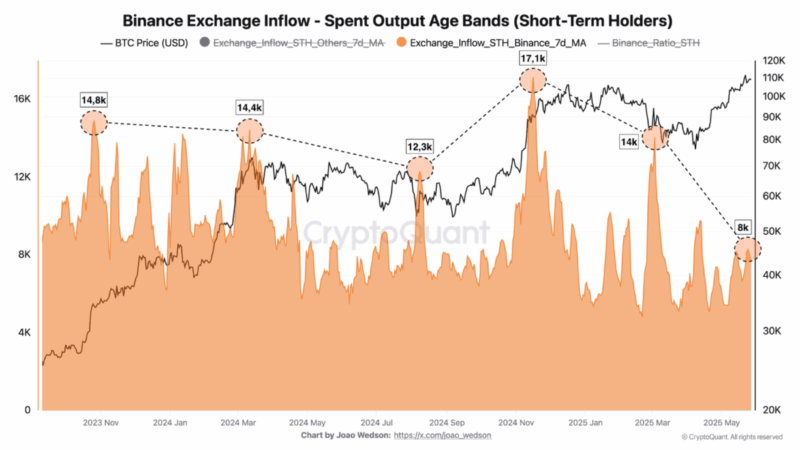US Lawmakers Press Treasury Secretary Janet Yellen on Crypto Oversight Gaps


Four U.S. lawmakers have pressed Treasury Secretary Janet Yellen regarding crypto oversight gaps. The Financial Stability Oversight Council (FSOC), which Yellen chairs, has issued “repeated warnings about the lack of oversight of the digital asset markets,” the lawmakers detailed, questioning Yellen how the council believes existing laws should apply bitcoin, ether, and non-security crypto assets.
Lawmakers Want Answers From Yellen
Representatives Patrick McHenry, Glenn Thompson, French Hill, and Dusty Johnson sent a letter to Treasury Secretary Janet Yellen concerning crypto regulation on Tuesday following her testimony before the House Committee on Financial Services. In her testimony, Yellen called on Congress to “pass legislation to provide for the regulation of stablecoins and of the spot market for crypto-assets that are not securities.”
McHenry chairs the House Committee on Financial Services; Thompson chairs the House Committee on Agriculture; Hill chairs the Subcommittee on Digital Assets, Financial Technology, and Inclusion; and Johnson chairs the Subcommittee on Commodity Markets, Digital Assets, and Rural Development.
The letter explains that following the collapse of crypto exchange FTX, the House Committees on Agriculture and Financial Services “embarked on a historic effort to craft legislation providing increased regulatory oversight over the digital asset markets.” Specifically, the Financial Innovation and Technology Act for the 21st Century (FIT21) “would provide federal regulators with clear authority over the digital asset spot markets and ensure the customer protections seen in the current financial regulatory structure apply to intermediaries and digital asset-related activities.”
The lawmakers pointed out that the Financial Stability Oversight Council (FSOC), which Yellen chairs, has issued “repeated warnings about the lack of oversight of the digital asset markets” and has identified the same gaps they sought to address in their legislation. The gaps include “limited direct oversight of the spot market for digital assets that are not securities, opportunities for regulatory arbitrage, and whether vertically integrated market structures can and should be accommodated under existing laws and regulations.”
Commenting on the authority of the U.S. Securities and Exchange Commission (SEC) and the Commodity Futures Trading Commission (CFTC) in regulating crypto, the Congress members shared with Yellen:
To highlight the gaps, bitcoin and ether have not been recognized as securities … Because these underlying assets are not securities, neither the CFTC nor SEC has the authority to register and regulate trading platforms or other intermediaries engaged in spot transactions in both of these digital assets.
The lawmakers proceeded to ask the Treasury Secretary some questions “To further understand how FSOC is facilitating coordination and communication between the SEC and CFTC as it relates to federal oversight of the spot market for digital assets that are not securities,” the letter reads. They asked Yellen to respond no later than Feb. 20.
Firstly, the Congress members requested details of the Digital Assets Working Group’s meetings, from its 2017 inception to 2023. Secondly, the lawmakers seek clarification from Yellen regarding the FSOC’s position that securities laws apply to all crypto-asset issuers and secondary transactions involving these assets.
Moreover, referencing SEC Chair Gary Gensler’s claiming that most crypto tokens qualify as securities, they highlighted that “the final investment contract analysis is backwards looking, made by a court after the transaction in question has been completed.” They asked Yellen: “How does this reactive legal authority provide adequate protection for customers, in the absence of comprehensive legislation?”
The lawmakers also asked the Treasury Secretary: “Is it the view of FSOC that both bitcoin and ether are not securities?” In addition, they questioned: “Given the existing authorities of the CFTC over segments of the non-security digital asset market, is it the Council’s view that expanding the CFTC’s jurisdiction to encompass the spot market in non-security digital assets is appropriate?”
What do you think about the lawmakers’ letter to Janet Yellen regarding crypto oversight? Let us know in the comments section below.


